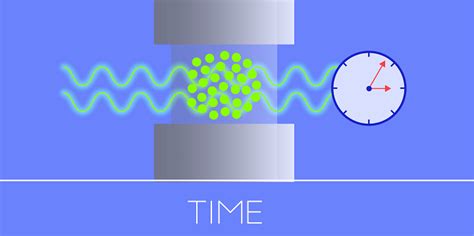The importance of accurate timekeeping cannot be overstated. From scheduling appointments to coordinating global events, our lives are governed by the precise measurement of time. As technology continues to advance, the field of time measurement is evolving to meet the demands of an increasingly fast-paced world. In this article, we will explore the future of high-tech time measurement and its potential impact on various industries.
Accurate timekeeping is crucial in many fields, including finance, transportation, and healthcare. In finance, for example, high-frequency trading relies on precise timing to execute trades in milliseconds. In transportation, accurate timekeeping ensures that trains, planes, and other vehicles arrive on schedule, reducing delays and improving safety. In healthcare, precise timing is essential for medical procedures, such as surgeries and patient care.
Atomic Clocks: The Foundation of Modern Timekeeping

Atomic clocks are the most accurate timekeeping devices in the world, with an error of only one second over tens of millions of years. These clocks use the vibrations of atoms to measure time, providing a stable and consistent frequency. The first atomic clock was developed in the 1950s, and since then, they have become the standard for modern timekeeping.
How Atomic Clocks Work
Atomic clocks use a process called spectroscopy to measure the vibrations of atoms. The clock contains a sample of atoms, typically cesium or rubidium, which are excited by a beam of light. The atoms then vibrate at a specific frequency, which is used to regulate the clock's timekeeping. This process is incredibly accurate, allowing atomic clocks to keep time with an error of only a few seconds over tens of millions of years.
Optical Clocks: The Next Generation of Timekeeping

Optical clocks are the next generation of timekeeping devices, offering even greater accuracy than atomic clocks. These clocks use light to measure time, rather than the vibrations of atoms. Optical clocks have the potential to be even more accurate than atomic clocks, with an error of only a few seconds over billions of years.
How Optical Clocks Work
Optical clocks use a process called optical spectroscopy to measure time. The clock contains a sample of atoms, which are excited by a beam of light. The atoms then vibrate at a specific frequency, which is used to regulate the clock's timekeeping. Optical clocks use a technique called laser cooling to slow down the atoms, allowing for even greater accuracy.
Quantum Clocks: The Future of Timekeeping

Quantum clocks are the future of timekeeping, using the principles of quantum mechanics to measure time. These clocks have the potential to be even more accurate than optical clocks, with an error of only a few seconds over billions of years. Quantum clocks use a process called quantum entanglement to measure time, where two or more particles become connected and can affect each other even when separated by large distances.
How Quantum Clocks Work
Quantum clocks use a process called quantum spectroscopy to measure time. The clock contains a sample of particles, which are entangled and then separated. The particles are then measured to determine their frequency, which is used to regulate the clock's timekeeping. Quantum clocks have the potential to revolutionize the field of timekeeping, offering even greater accuracy than optical clocks.
Applications of High-Tech Time Measurement
High-tech time measurement has a wide range of applications, from finance to healthcare. In finance, accurate timekeeping is essential for high-frequency trading, where trades are executed in milliseconds. In healthcare, precise timing is essential for medical procedures, such as surgeries and patient care.
Financial Applications
High-tech time measurement has a number of financial applications, including:
- High-frequency trading: Accurate timekeeping is essential for high-frequency trading, where trades are executed in milliseconds.
- Financial transactions: Accurate timekeeping ensures that financial transactions are processed in a timely manner.
- Risk management: Accurate timekeeping helps to identify potential risks and mitigate them.
Healthcare Applications
High-tech time measurement has a number of healthcare applications, including:
- Medical procedures: Precise timing is essential for medical procedures, such as surgeries and patient care.
- Patient monitoring: Accurate timekeeping ensures that patients are monitored in real-time, allowing for quick response to any changes in their condition.
- Medical research: Accurate timekeeping is essential for medical research, where precise timing is necessary to collect accurate data.
Conclusion
In conclusion, accurate timekeeping is essential for a wide range of applications, from finance to healthcare. High-tech time measurement has the potential to revolutionize the field of timekeeping, offering even greater accuracy than traditional methods. Atomic clocks, optical clocks, and quantum clocks are just a few examples of the many technologies being developed to measure time with greater precision.






What is the most accurate type of clock?
+The most accurate type of clock is the atomic clock, which uses the vibrations of atoms to measure time.
What are the applications of high-tech time measurement?
+High-tech time measurement has a wide range of applications, including finance, healthcare, and scientific research.
What is the future of timekeeping?
+The future of timekeeping is likely to involve the development of even more accurate clocks, such as quantum clocks, which use the principles of quantum mechanics to measure time.
